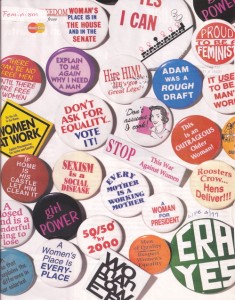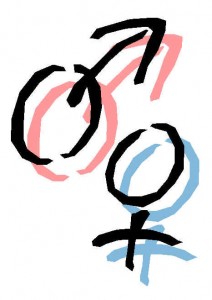After falling prey to an Internet romance scam, Jane* approached AWARE for counselling and legal help. She has decided to share her story here in the hope that it will prevent others from becoming victims.
This is a true story.
She was Jane Wee. He was Danny Stewart.
He found her through Facebook.
She was lonely and disillusioned by love. He was persistent.
She ignored the stranger’s first few emails then figured, what the heck. It would be OK to have a penpal. “I had a penpal as a kid – it was fun.”
 But with each passing email, chat session and, eventually, phone call, Danny ramped up the affection – and the pressure.
But with each passing email, chat session and, eventually, phone call, Danny ramped up the affection – and the pressure.
He was skilled at toying with Jane’s feelings: When she pulled back, he pressed on. When she showed interest, he would disappear for days. It drove her crazy. Her desire grew.
He said he was Irish, though his broken English suggested otherwise.
“As more we know each other in these relationship the more our love growes.”
Most of his writing was like that: flawed, vacuous, but loving. Yet at times his prose not only improved but waxed poetic.
“When deep down in the core of your being you believe that your soulmate exists, there is no limit to the ways he or she can enter your life.”
As time passed she revealed more and more personal details: Her phone number, her address, where she worked.
In turn he also shared bits about himself.
Age: 42
Favorite movie: Romeo & Juliet, Titanic
Favorite TV show: Sex And The City, Desperate Housewive
Favorite clothes: Pyjamas and sneakers
What I love to buy: music, clothes and jewellery
A man who likes Sex and the City and buying jewellery? Despite an odd penchant for pyjamas, he was a girl’s dream come true.
On top of that he had a high-level job as a field engineer in the oil & gas industry – a job that involved him travelling around the world and being frequently offshore.
After many demands that he send photos, eventually he produced two: he was not ugly but not gorgeous. His beard, glasses and shaved head gave him a ‘kinda cool kinda dorky’ look that you could feel safe with. So far, so good.
Because he moved around he had several phone numbers. Yet he was constantly unreachable.
When their schedules allowed it, they chatted over Live Messenger Video. The camera on his highly unreliable laptop was always broken. So on the calls, he could see her but she could not see him.
As the relationship escalated, communication became more steamy. She was a cybersex noob. He was frustrated by their distance. She tried to please him. She tried to turn him on. She exposed herself. He always wanted more.
It is a joy to feel sexy and wanted. But at times this crossed a line for her and she left their cyber lovemaking sessions feeling torn and ashamed. She wanted to show her love, but was shy and conservative at heart.
Eventually, after months of cat-and-mouse attempts to meet up in this country and that, he confirmed he had booked his flight to Singapore. He also booked a room at the Royal Plaza on Scotts and sent her the confirmation. After six months of long-distance romance, the lovers would finally be united.
When the longed-for day finally arrived, she went to meet him at Changi Airport. His flight was due in at 4:30pm.
At 4:35pm as she peered through the glass window of the arrival hall, her phone rang.
It was a woman with a Malaysian accent.
“Is Danny Stewart your boyfriend?”
“Yes”
“We are holding him in custody. He has broken immigration law by entering the country with too much cash. He was carrying $32,000. Unless he pays the fine we will detain him. You may speak to him for two minutes.”
The phone was then passed to what sounded like a very frightened Danny.
“I didn’t know there was a regulation. Please! You have to get me out of here.”
The woman came back on the phone and explained that to effect Danny’s release, Jane would need to pay $2,500. She gave her instructions on how to wire the money from the Changi Airport branch of Western Union to a branch in Malaysia.
Jane agreed. Danny could pay her back when he got out. She feared for his safety.
She knew, of course, that the “fine” was bogus. Danny had fallen victim to a bribery scam.
At the Western Union counter, Jane filled in the form.
Before accepting her instructions, the manager politely asked, “Ma’am, do you know the person you are sending the money to?”
She hesitated.
“Ma’am please. There are a lot of scams out there. Do you know this person?”
After a pause, she briefly explained why she needed to send the money.
“Ma’am, it’s a scam. I’m afraid that we cannot let you make the payment.”
“But I’m worried for my friend. If I lose the money I can live with it. I just want to protect him.”
“There’s someone you need to talk to.”
With this puzzling statement the manager dialed the phone and passed it to her. A woman was on the other end of the line.
“Hi. I’m a senior manager at Western Union and I’d like to tell you a story. Let me know if it sounds familiar.”
The story relayed was Jane’s very own story: The meeting on Facebook; the months of online romance; the plans to finally meet; waiting at the airport; the phonecall; the story about bringing in too much money and some fine; the request to wire money to Malaysia.
Jane was stunned. But nothing struck her harder than the final punchline.
“You have to understand Miss: Danny is in on it. He has been playing you all along.”
It took a while to sink in. It couldn’t be true.
She left the Western Union counter with the final advice to contact the police. Stunned, she sat down amongst the bustle of waiting families and happy reunions to compose herself.
Soon, the Malaysian lady called back demanding to know where the money was.
“Western Union won’t let me make the transfer. So what am I supposed to do? Leave me alone.”
The stranger got more angry and passed the phone on to ‘her manager’ who gave Jane new instructions for wiring money. She told them to get lost.
After hanging up, the calls started coming from Danny. He was crying. He was afraid, desperate. “Please, please pay.”
His voice still tugged at her heart. But she found the strength to resist. “Don’t call me again.”
The calls stopped but SMSes still poured in. Then finally, hours later, the SMSes stopped too.
The next day she reported the matter to the police. From their perspective the jurisdiction of the crime was not likely Singapore. It was wherever those asking for the money resided, which seemed to be Malaysia. It was a dead end.
In the days that followed, life went back to normal. Dull normal. Sad normal. After the heady romance and cruel let down, normal was painful. She had trusted someone who had her heart ripped out.
She poured back over his emails with fresh eyes.
The lovely line about finding your soulmate was stolen from author and love guru Arielle Ford.
His job description? Taken right out of a job listing of an oil exploration company.
Worst of all? His lengthy list of personal factoids could be found word-for-word posted on the website romancescam.com. It had been published over three years ago. It seems Danny also goes by the name of John Allen, Adam Raines, Mike Ferris and Jose Cruz. He’d been scamming people all over the world.
Was there nothing real about him? Danny Stewart was a complete fiction.
Jane was spiraling into depression. Yet she clung to the hope that time would heal her wounds. Would the day come when this was a distant memory, when she could forgive herself for falling for someone she never met, who didn’t even really exist?
It is one thing to have your heart broken. But to be made a fool…that is quite different. The broken-hearted receive sympathy. The foolish are told to wise up. Nobody remembers they also have hearts to mend.
As it turned out, Jane was not given a chance to move on. The end did not come so easily.
Two weeks after the airport drama, a large brown envelope arrived by mail. It had a CD containing the video from their online intimacy. She was naked. Exposed.
The envelope included a simple message: Call.
The person she knew as Danny no longer contacted her. She now found herself being harassed on a daily basis by emails and calls from a group of people – a gang – based in Malaysia.
They never made any outright threats. Their request was simple: Spare your family the shame of your behaviour. Call.
She didn’t.
They fed back all the info she had provided to Danny over the months of courtship: names of relatives, addresses, email addresses, phone numbers. The threat was implicit: Call and do what we want or everyone gets the video.
She went back to the Police. They recommended she speak to the Malaysian authorities.
Eventually, through a friend, she found someone who was familiar with these scams.
“Almost certainly it is a Nigerian gang operating out of KL. But it will be almost impossible to track them down unless they break the law.”
Nobody seemed able to help. They never demanded money. The threats were always veiled.
“Don’t ignore my email. Things will only get worse. You need my help.”
The phone number they gave came up on a number of fraud watchdog sites. This gang was very active – they were 24-7 scam artists. Was there nothing that could stop them?
Eventually she decided she had to let her family know. Better for them to hear the story from her own lips than suffer the shock of one day receiving the video by surprise.
Her mother was unwell. She would have to tell her father. But how do you tell your father that his daughter has revealed herself on video?
“It was possibly the hardest thing I’ve ever had to do in my life.”
When she finally worked up the courage, she told him her story. Through tears, she confessed her shame and foolishness.
“But you know what he said? ‘We all do silly things sometimes. Don’t worry about it. I am more concerned for your safety.’”
Just like that.
Just like that her father’s love made what was the worst episode in her life become something that she just might get through. People can surprise you.
Epilogue
It has been two months since Jane learned the truth about Danny. The emails keep coming, but they are now less frequent.
Jane is receiving counselling and still expects that one day all her friends and colleagues will all see the video. She has not yet reconciled herself to this possibility and fears the shame will be overwhelming.
But who knows? People can surprise you. And each day, Jane is getting stronger. Maybe one day she will laugh it off and say, “Yup. We all do silly things sometimes.”
In the meantime, Danny Stewart is still out there. Or John Allen. Or whatever he is calling himself these days.
Warning signs you’re being scammed online
- Poor spelling and grammar
- Failure to send pictures on request, or video chat
- Having an accent that does not sound like it belongs to the country he claims to be from
- Forming an online relationship that becomes serious quickly
- Claims to be working abroad
- Insisting money be sent via Western Union or other money order
Note: Both men AND women have fallen prey to such scams.
The scam may include requests for:
- Airfare and visa
- Travelling money
- Payment for medical bills and other emergencies
- Payment for fines and deposits
What should you do?
- Insist he reveal his face via a video call
- Show your correspondence to a friend and get their opinion. Does the language and grammar used sound authentic to their claimed nationality?
- Google their more eloquent and impressive statements: Are they stolen from the Internet?
- NEVER SEND MONEY
*All names have been changed.
The writer is AWARE’s volunteer IT consultant.
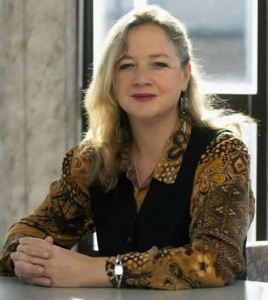 Professor Laurel Weldon is an expert on Women’s Rights and Gender Equality.
Professor Laurel Weldon is an expert on Women’s Rights and Gender Equality.




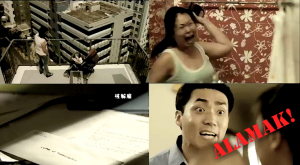
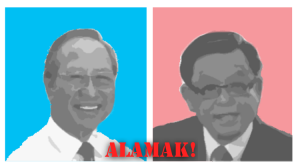

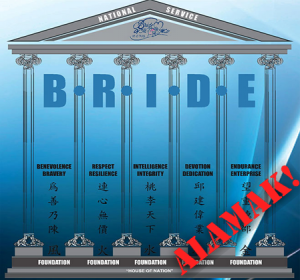
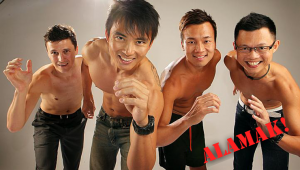

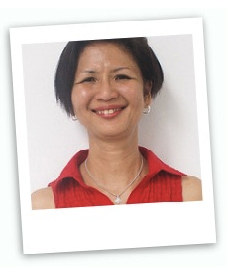
 But with each passing email, chat session and, eventually, phone call, Danny ramped up the affection – and the pressure.
But with each passing email, chat session and, eventually, phone call, Danny ramped up the affection – and the pressure.

